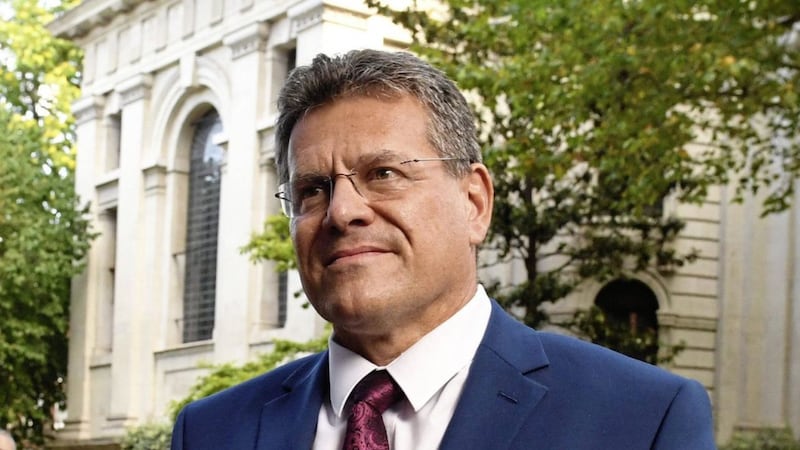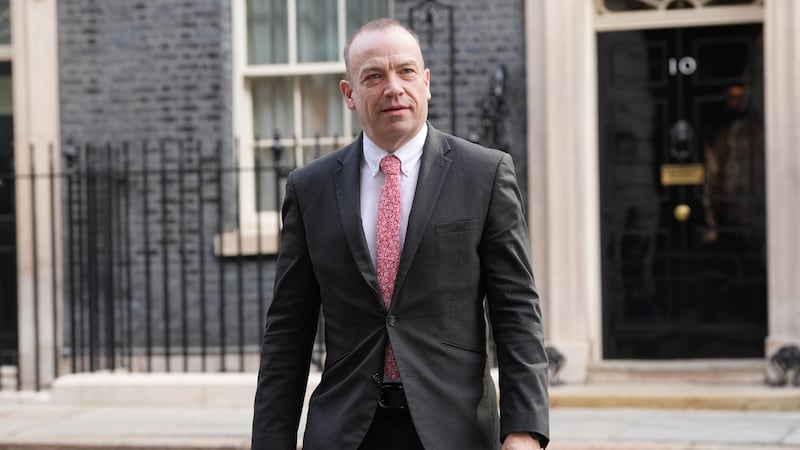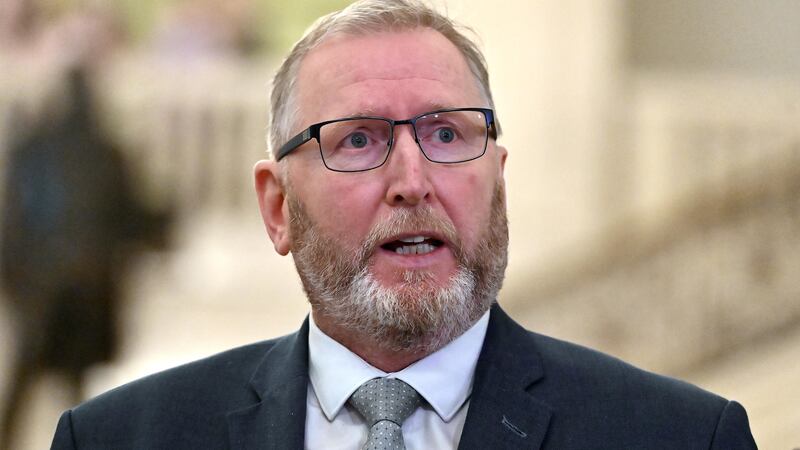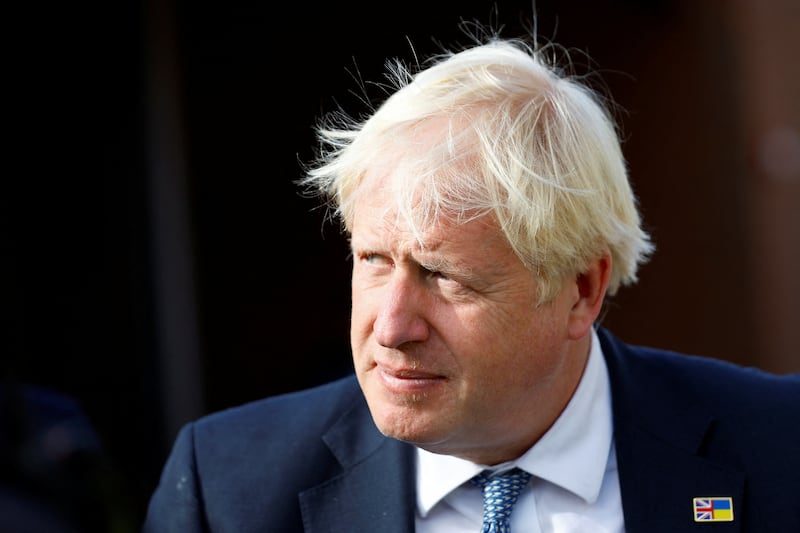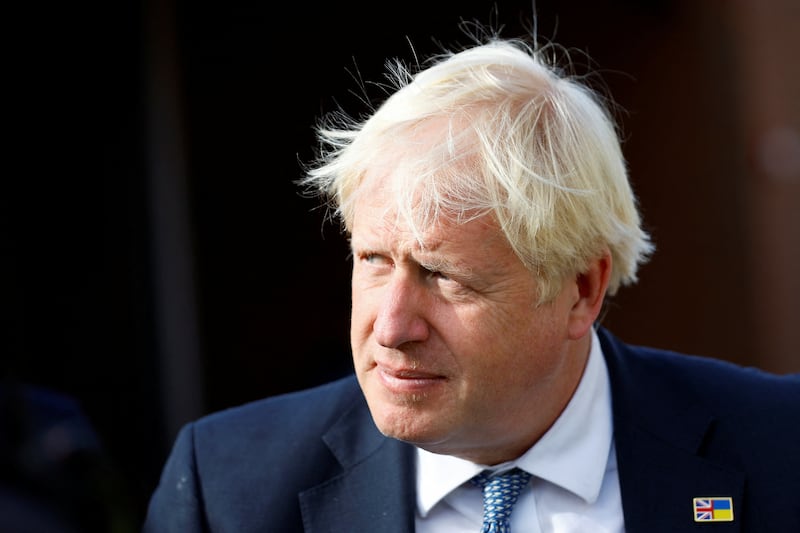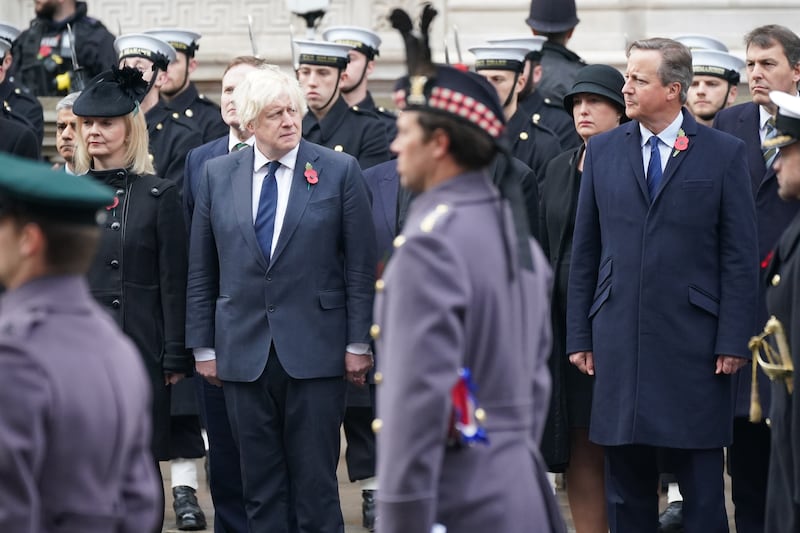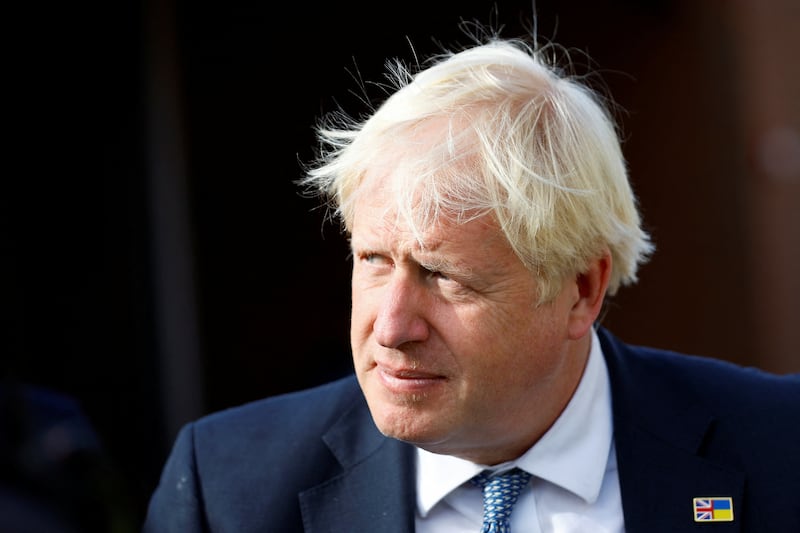The European Union has warned the UK it will not renegotiate the deal on Northern Ireland’s post-Brexit trading arrangements after Lord Frost demanded significant changes to the terms.
Brexit minister Lord Frost said “we cannot go on as we are” but held back – for now – from taking the dramatic step of effectively suspending parts of the deal, even though he claimed the UK would be justified to do so.
British prime minister Boris Johnson hit out at the “inflexible” approach of the EU in implementing the agreement he signed but said there was an “opportunity to proceed differently”.
But European Commission vice-president Maros Sefcovic flatly rejected the UK’s call to renegotiate elements of the Northern Ireland Protocol.
The protocol, part of the Brexit divorce deal agreed by the UK and Brussels, effectively keeps Northern Ireland in the EU’s single market for goods.
This means checks on goods being sent from Great Britain into the single market – and in some cases could result in prohibitions on certain products that do not comply with EU rules.
The protocol was put in place to ensure there would be no hard border with the Republic, but it has instead effectively placed a trade barrier in the Irish Sea.
Lord Frost said a “new balance” in the arrangements was needed.
He told peers: “We urge the EU to look at it with fresh eyes and to work with us to seize this opportunity and to put our relationships on to a better footing. We stand ready to work with them to deliver the brighter future which is in reach.”
The proposals published by the British government include:
- An “evidence-based and targeted approach” to goods at risk of entering the single market, but products destined just for Northern Ireland would be allowed to circulate “near-freely”.
- Continued access in Northern Ireland to goods from the rest of the UK, through a regulatory approach which accepts both British and European Union standards.
- A “normal” treaty framework to govern the arrangements, with no role for the Court of Justice.
One idea put forward would be for UK traders to declare whether the final destination for their goods was Northern Ireland or the Republic.
“Full customs formalities would be required for goods going to Ireland and the UK would undertake to enforce them. Other goods would not require customs processes.”
Lord Frost set out why change was necessary, highlighting the economic and social damage he said would have justified the use of Article 16, effectively tearing up parts of the deal.
“There has been significant disruption to East-West trade, a significant increase in trade on the island of Ireland as companies change supply chains and considerable disruption to everyday lives.
“There has also been societal instability, seen most regrettably with the disorder across Northern Ireland at Easter.”
There was a “false, but raw” perception in the unionist community of separation from the rest of the UK which has had “profound political consequences”.
Lord Frost told peers there had been progress in talks with the EU – with officials led by Mr Sefcovic – but “overall, those discussions have not got to the heart of the problem”.
“Put very simply, we cannot go on as we are,” he said.
But in his response, Mr Sefcovic said: “We will continue to engage with the UK, also on the suggestions made today.
“We are ready to continue to seek creative solutions, within the framework of the protocol, in the interest of all communities in Northern Ireland.
“However, we will not agree to a renegotiation of the protocol.”
Lord Frost said the Northern Ireland Protocol was "undermining the peace process" and urged his EU counterparts to seriously consider the UK proposals.
He told broadcasters: "We are looking to make changes in the protocol and it is perfectly normal to change treaties in light of experience and it happens all the time."
Lord Frost would not be drawn on how long the UK would wait before taking more drastic action.
He said: "We want to move forward by consensus, we want to see if we can find a new balance, a new solution that we can both stand by and implement and make work."
He said there was a "big prize" if the UK and EU could reach an agreement, and added: "UK/EU relations are a little difficult at the moment but if we can put the protocol on to a better footing, we can move forwards constructively together more broadly as well."
The Republic's minister for foreign affairs Simon Coveney said that the Northern Ireland Protocol was jointly agreed by the UK and the EU, and "must be jointly implemented".
Mr Coveney was reacting after Lord Frost demanded significant changes to the terms of the protocol.
Mr Coveney said: ""We note the publication of the UK government paper on the protocol on Ireland/Northern Ireland.
"We will analyse this paper closely, together with our EU colleagues.
"The protocol is the agreed solution between the UK and the EU to the problems caused by Brexit for the island of Ireland.
"The protocol safeguards the Good Friday Agreement, avoids a hard border on the island of Ireland, and protects the single market, and Ireland's place in it.
"The protocol was jointly agreed by this UK government and the European Union. It is jointly owned by them, and must be jointly implemented by them.
"We will continue to encourage the UK to work in partnership with the EU to identify realistic solutions in a spirit of positive and constructive engagement."
Mr Coveney said the EU was ready to find solutions to any difficulties caused by the Northern Ireland Protocol.
He said: "The EU has consistently said it is ready to find flexible, practical approaches to address the difficulties citizens in Northern Ireland are experiencing as regards the implementation of the protocol.
"However, any solutions must take place within the framework of the protocol and the principles that underpin it.
"We must also bear in mind the significant opportunities the protocol presents for business and employment in Northern Ireland.
"Northern Ireland is the only place in the world whose goods have free and full access to both the EU single market and the rest of the UK internal market.
"Surveys show that two-thirds of NI businesses see the opportunity in this - and we are seeing historically high FDI interest in the north. We need to use the protocol to deliver on a prosperity agenda for the people of Northern Ireland.
"Realising these opportunities, as our economies build back from the impact of Covid, should be the focus of our energy at this time."
